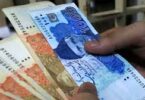F.P. Report
WASHINGTON, DC: An International Monetary Fund mission, led by Mariana Colacelli, conducted discussions on the 2022 Article IV consultation with Equatorial Guinea during May 12-19, 2022.
The COVID-19 pandemic in 2020, and Bata explosions in 2021, struck Equatorial Guinea at a time when its economic vulnerabilities had already been aggravated by a prolonged period of depressed hydrocarbon prices, and seven consecutive years of decline in real GDP. As a result, the shocks further adversely impacted economic activity, the banking system, fiscal revenue, and social outcomes. While non-hydrocarbon GDP is estimated to have increased by 1.3 percent in 2021 due to a deceleration in COVID-19 cases and easing of pandemic containment measures, real GDP is estimated to have declined by 3.5 percent.
The authorities reacted swiftly to the fallout from the pandemic and Bata explosions. The government deployed a health spending plan focused on COVID-19 prevention and mitigation, together with a social assistance scheme for the most vulnerable. Limited and temporary tax relief was provided to the private sector, which helped address cash-flow pressures and cushioned adverse effects on economic activity and employment. In addition, the authorities delayed the execution of capital spending plans and other non-priority expenditures. For the Bata emergency, they provided support to about 5,000 vulnerable households, including via eight shelters for over 500 orphaned children and a shelter for the elderly.
Despite recent negative shocks, the near-term outlook has improved considerably. Real GDP is projected to grow by about 6 percent in 2022 due to base effects from the lower-than-expected gas production in 2021, and the start of Bata reconstruction. The recent relaxation of pandemic containment measures and higher international oil prices are helping boost government revenues, along with export earnings, narrowing the external current account deficit. However, high non-performing loans (driven by the government arrears with construction firms) and undercapitalization in the domestic banking system, are a hinderance to private credit expansion, limiting further growth in private domestic investment and non-hydrocarbon sector. Inflation is projected to rise to 4 percent in 2022, driven by international oil and food prices, owing to global recovery from the pandemic and supply shocks caused by Russia’s invasion of Ukraine.
Over the medium term, growth is projected to decline. Hydrocarbon output is expected to fall as major fields mature and investments in exploration slow. With a stalled structural reform agenda and reduced hydrocarbon revenues, the non-hydrocarbon sector would remain weak and living standards would fall.
The balance of risks to the outlook is tilted to the downside. On the upside, a further sustained increase in hydrocarbon prices would boost export earnings, improve fiscal balances, and the NFA. On the negative side, a further sustained surge in international food and fertilizer prices would further increase domestic inflation, negatively impacting food security of already vulnerable segments of the population, rising the prospects of social tensions. Additional downside risks arise from a resurgence of the pandemic, a spike in marine piracy incidents, further delays in addressing governance and corruption vulnerabilities, or continued worsening of banking sector stability indicators.






